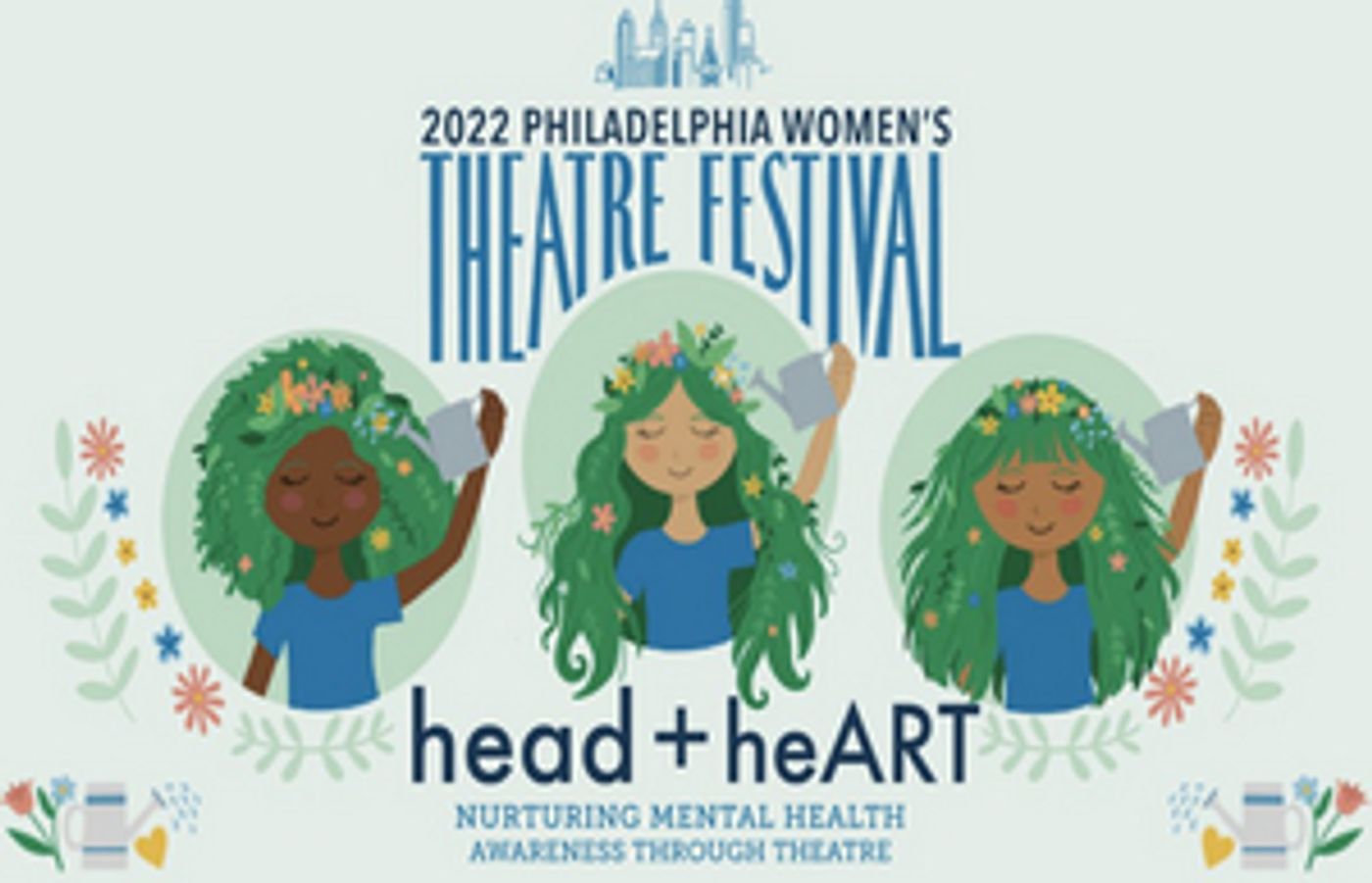Philly Women's Theatre Festival Nurtures Mental Health Through Theatre
Learn more about the full lineup here!

Philadelphia Women's Theatre Festival (PWTF) begins its annual play festival on August 4 and ends on August 7. This year's festival showcases seven new plays by Philadelphia playwrights all aimed at breaking down the stigma that surrounds the discussion and treatment of mental illnesses. This powerful line-up offers stories of loss, love, and ultimately hope that is sorely needed in a community struggling to recover from the emotional and psychological effects of a pandemic. In a revolutionary manner the shows aim to increase "awareness around isolation, invisibility, and stigmas." This year's festival is set to take place at the Arden Hamilton Family Arts Center: 62 N. St. Philadelphia, PA 19106.
Community Resources
The artists at PWTF saw the impact of the pandemic on the overall mental health of the surrounding community and decided to become a part of the solution. Their website has a page that is dedicated to mental health resources. For the past six months PWTF has added targeted mental health and wellness resources for largely underserved groups, including veterans, immigrants, Black and brown people, and women. There's even a page dedicated to anxiety resources - something incredibly useful for our busy world! To see the full list of resources, visit here.
The movement to empower the community to care for their health continues with the staged reading series lineup set to begin on August 4, including three full and four short form plays:
When We Fall by Emma Gibson
Death Valley: A Love Story by Sandra Asher
Moments by Reva Stover
The Slippery Season by Kanako Neale
Talking Over Tea by Kim Shimer
Stella for Star by Megan McDermott
Family Tradition by Lori Felipe-Barkin
Through a story about loneliness, betrayal, and regret, playwright Emma Gibson gives us hope that we can find human connection, even across time and space in When We Fall, the play that will set head + heART in motion on Thursday, August 4, at 8:00 pm. Then, on Friday, August 5 at 8:00 pm, playwright Sandra Fenichel Asher chronicles Carol's journey through love, loss, grief, and life after loss based on actual journal entries, collages, and photographs. The play, Death Valley: A Love Story, follows therapists who find love for each other later in life.
Short Plays About Suicide will be staged on Saturday, August 6 at 8:00 pm including LoriFelipe-Barkin's Family Tradition which tackles the idea of inherited mental illness through a humorous lens. Kanako Omae Neale introduces us to Renee, who walks down into the subway with plans to jump in front of a train and end it all, for the third time in The Slippery Slope. While she hangs her life in the balance, Renee befriends a few regular passengers, whose kindness touches Renee. Then, in Kimberly Shimer's Talking Over Tea, Joan has come to her daughter's apartment to help her recover from her recent suicide attempt. Unable to cope with the reality of her daughter wanting to commit suicide, Joan begins to make tea. Jill, her daughter, becomes infuriated with her mother's avoidance and the tension in the room comes to a rolling boil. Joan then reveals a family secret that brings the pair closer than ever. Finally, Reva Stover's Moments is a collection of vignettes about the struggles of marginalization. Each scene takes place in different locales, includes different characters, and addresses different types of feelings of insignificance. These specific vignettes highlight certain archetypes as they struggle with mental illness.
On Sunday, August 7 at 2pm, the head + heART staged reading series concludes with Megan McDermott's Stella for Star which follows the journey of Tennessee Williams', Stella Kowalski after the events of A Streetcar Named Desire. What happens to her, her child, and her marriage after her sister Blanche is led away? Stella for Star is a story of sisterhood, survival, and salvation.
Wellness Workshop
But wait, there's more! PWTF has partnered with the Parent Artist Advocacy League (PAAL) to hold a special workshop titled "Works in Progress: Stories of Mental Health in Parenthood" on August 6 from 2 -4 pm. They say it takes a village. That adage applies to both raising children and making theatre. What happens when one doesn't have a village? What resources are available?
Be the village for us as we workshop two plays in their beginning stages that discuss postpartum mental health. Acclaimed playwright Brie Knight tells the story of The Baby, exploring what may have happened if Nina and Trigorin's baby had survived in Chekov's The Seagull. Nationally recognized playwright Julie Zaffarano's play Tapping at the Window follows the true story of Julie's grandmother who discovers a family secret--that her mother hadn't been dead all those years, but rather institutionalized for postpartum depression. Both playwrights will discuss their process and will be present for a question-and-answer session after the readings. Looking for your own village? A representative from the Parent Artist Advocacy League (PAAL) will give a short presentation at the beginning of the workshop to discuss the resources that are available for those in the business.
Videos

